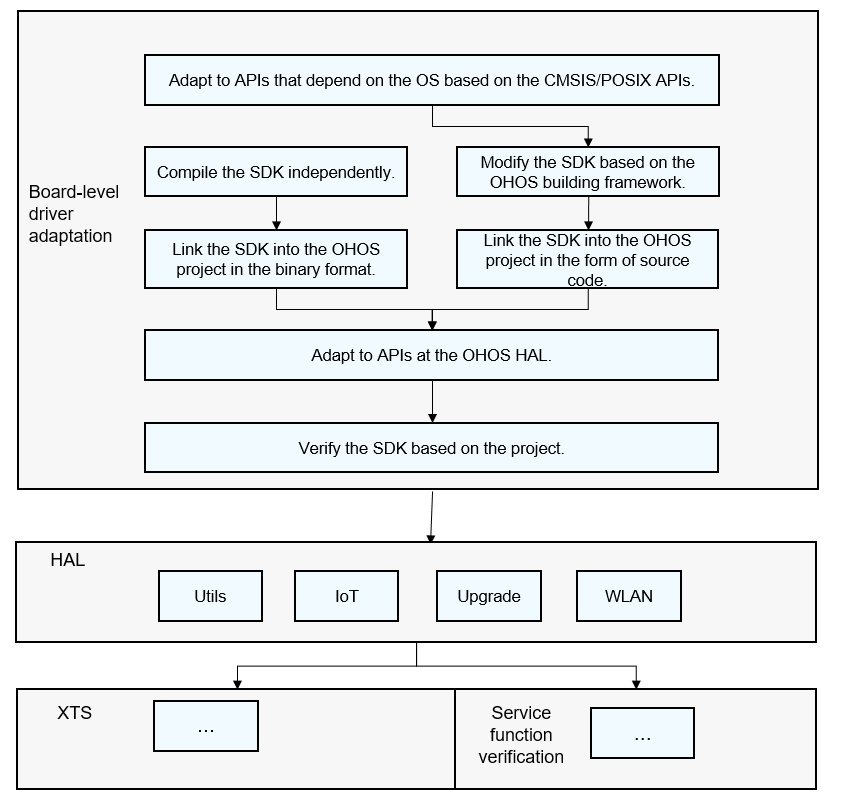harmony(鸿蒙)Porting Overview
Porting Overview
Porting Process
After the minimum system is ported, you can port the board-level system by:
- Implementing the board-level driver adaptation
- Completing the implementation at the HAL
- Implementing the XTS
- Verifying service functions
Figure 1 Process for board-level driver adaptation

Board-Level Directory Specifications
For details about board-level system building adaptation, see Compilation and Building Subsystem. The board-related drivers, software development software kits (SDKs), directories, and HAL implementation are stored in the device directory. The directory structure and its description are as follows:
.
├── device --- Sample board
│ └── xxx --- <Vendor name of the board>
│ └── xxx --- <Board name>. This directory contains the demo of the LiteOS Cortex-M kernel, which can run properly.
│ ├── BUILD.gn --- Building configuration file of the board
│ ├── board --- Specific implementation of the board (Optional. If a product-level demo is provided, implementation at the application layer is stored in this directory.)
│ ├── liteos_m --- LiteOS Cortex-M kernel to use based on the kernel_type in the BUILD.gn file
│ │ └── config.gni --- Building options
│ ├── libraries --- Board-level SDK
│ │ └── include --- SDK-provided header files that are exposed externally
│ │ └── ... --- binary or source files
│ ├── main.c --- main function entry (Product level configuration is used if the same definition exists at the product level.)
│ ├── target_config.h --- Board-level kernel configuration
│ ├── project --- Board-level project configuration file (Product-level configuration is used if the same definition exists at the product level.)
│ └── adapter --- HAL interfaces (Optional)
│ └── hals
│ ├── communication
│ │ └── wifi_lite
│ │ ├── ...
│ └── iot_hardware
│ ├── upgrade
│ ├── utils
│ └── wifiiot_lite
├── vendor --- End-to-end feature product sample of OpenHarmony
│ └── huawei --- Vendor name
│ └── wifiiot --- Feature product
│ ├── app
│ │ └── main.c --- main function entry of the product
│ ├── project --- Project configuration file
│ ├── BUILD.gn --- Project building entry
│ └── config.json --- Building configuration file of the product and components used for product configuration
└── out --- Output directory during the building
├── ... --- .bin files generated during board/product building
你可能感兴趣的鸿蒙文章
harmony(鸿蒙)Combo Solution – ASR Chip Porting Case
harmony(鸿蒙)Mini-System Devices with Screens — Bestechnic SoC Porting Case
harmony(鸿蒙)Third-party Module Adaptation
harmony(鸿蒙)Board-Level Driver Adaptation
harmony(鸿蒙)Implementation of APIs at the HAL
0
赞
- 所属分类: 后端技术
- 本文标签: